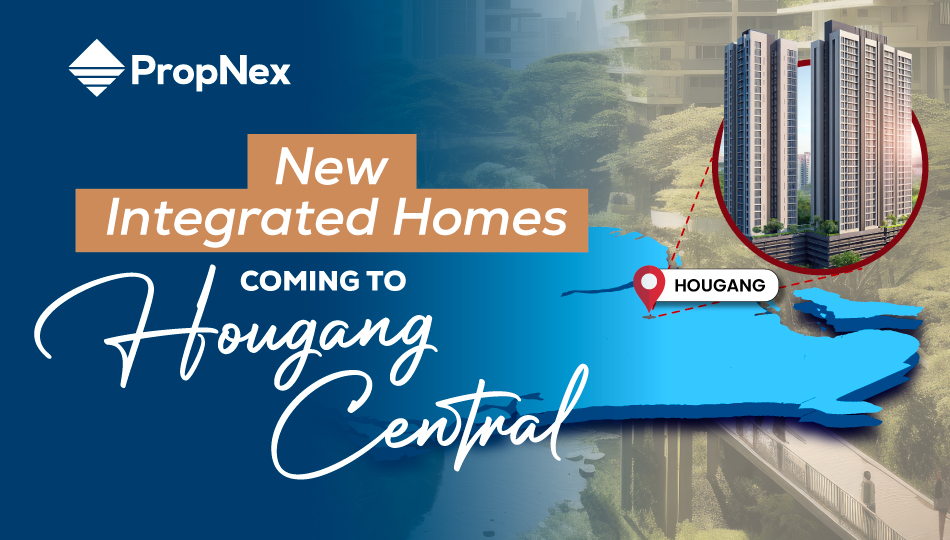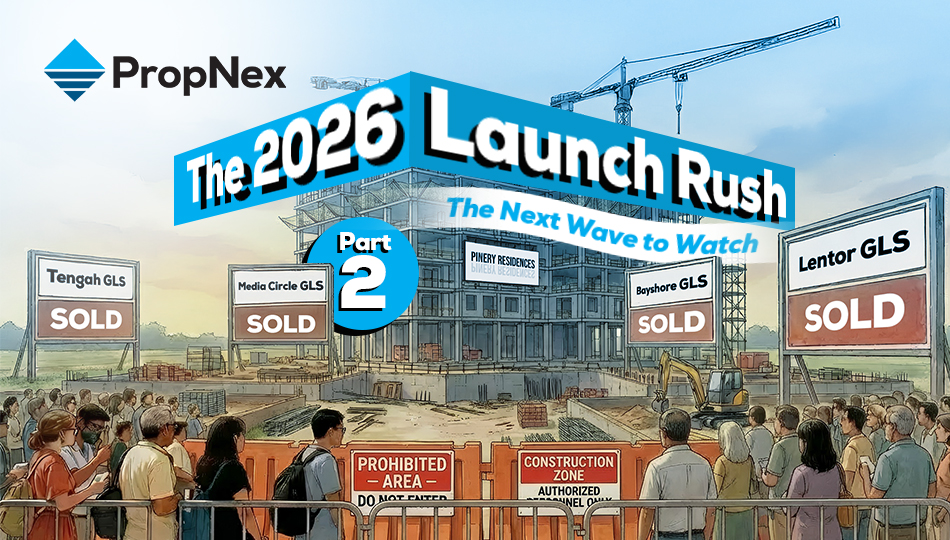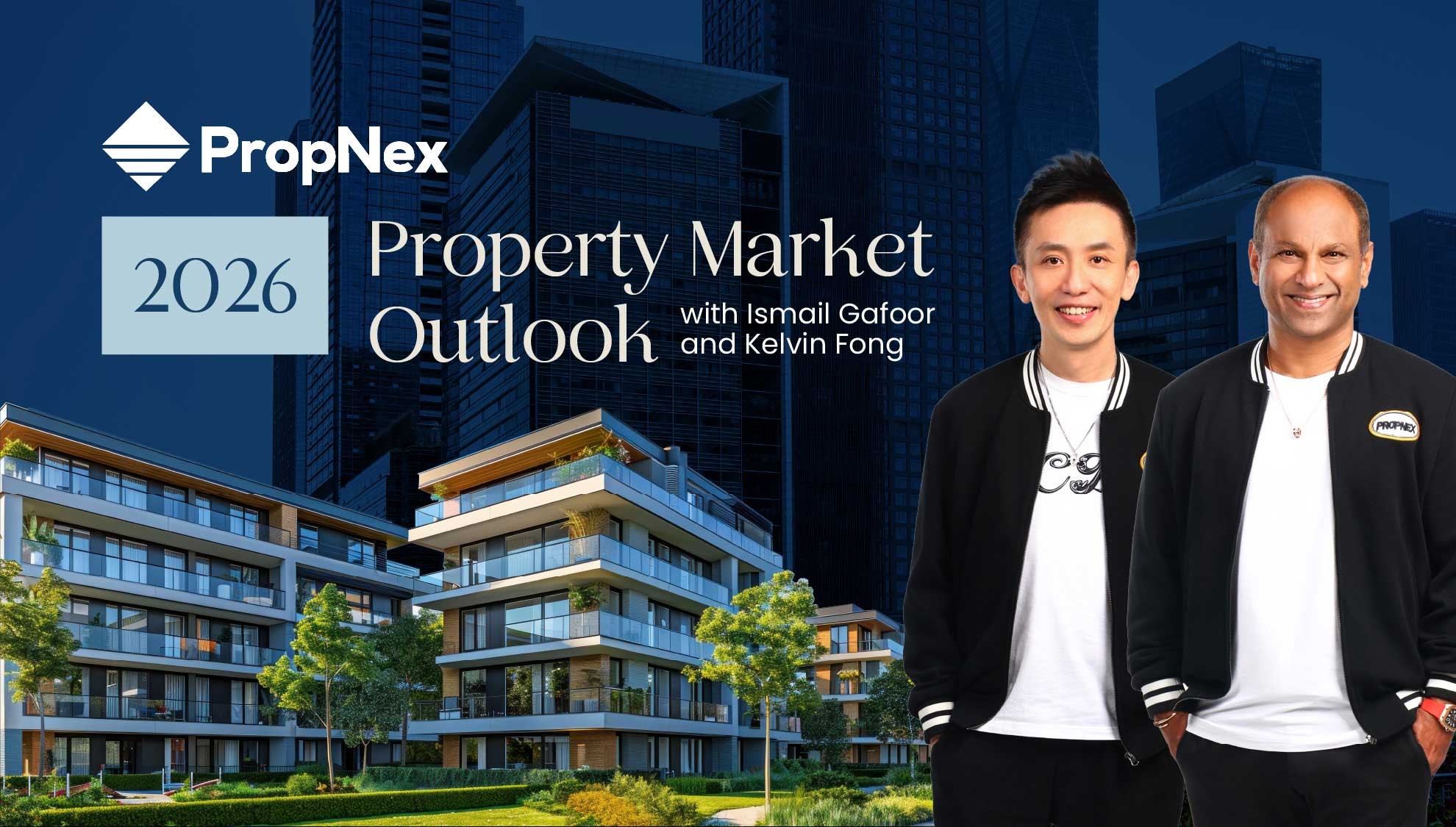Build Up Savings For Retirement Through Real Estate Investment
.jpeg)
PropNex Property Frontrunners Series Featuring Kelvin Fong, Executive Director
By PropNex Research and editorial
The Singapore residential property market was red hot in 2021, with sales and prices touching multi-year highs. Apart from owner-occupiers and HDB upgraders, many investors also entered the market in search of attractive properties with good growth potential.
Investing in properties over the longer-term can help to build one’s retirement nest egg – but how does one get started on the investment journey? In this interview segment, PropNex Picks spoke with Executive Director Kelvin Fong on his experiences in investing and to find out more about the asset progression strategy to grow wealth.
Tell us about your real estate investment journey, when did you buy your first home and what sort of financial planning did you do?
My wife and I bought our first investment home in 2014. It was a 2-bedder unit in a small development in the Mackenzie area in District 9. At that time, we compared the price of the unit which was about $550,000 and that of resale HDB flats in Rochor – which had cost around $300,000 plus then – we felt that the price gap was not that big and made the purchase. It was our first foray into the private residential market. Looking back, I would say that was probably the start of our investment journey – using real estate as an approach to grow our wealth progressively.
In terms of financial planning, I made sure that my monthly income can service the home loan instalment quite comfortably, and ensure that sufficient funds were set aside to cover at least 6 months of the loan payments – in the event of temporary loss of income or fluctuations in income.
Many investors – myself included - will be hoping to lease out the unit and to use the rental income to cover a part of or all of the monthly loan instalment. Prior to the purchase, as part of due diligence, we should find out the average rent that the property can command, based on recent transactions. This will enable us to better plan our finances. In instances where the rent may not cover the monthly loan repayment fully, we should ensure that we can top up the difference easily after accounting for all other expenses. If investors are uncomfortable with the numbers, then I would advise them to buy a cheaper unit. Holding power is crucial in property investment as it gives you the ability to ride out down times and rough market cycles. In addition, investors must also consider the rising interest rates and plan accordingly.
How did your real estate investment help you to grow and preserve your wealth? Can you share some key investment tips and mistakes to avoid?
After three years, I sold that first investment home in the Mackenzie area and diverted the sales proceeds to another property which offered a better potential. So, we moved from a $550,000 property to a $1 million property and so on – monetising assets and growing our wealth along the way. For us, it is about that upward movement in terms of holding a property of greater value as we age; by doing that we are building up our savings and ensuring that we can meet our retirement needs in the future.
Recently, I sold a 1-bedroom apartment and purchased a 4-bedder in a new launch project by way of a trust for my daughter, taking the opportunity to improve my real estate portfolio. I think property investment is not a passive activity, an investor has to stay engaged and constantly learn about the market, so as to be able to spot good opportunities and react quickly.
Based on my personal experience, I would say that our 30s and 40s would be an ideal time to invest in real estate, and investors should review their holdings every five years to see if there are good opportunities to buy and sell. Property investment may appear daunting at first because it is a long-term commitment that involves quite a lot of money. For my wife and I, we knew that investing in property meant having to get out of our comfort zone and it did motivate us to work harder. I believe every investment has an element of risk. It is about how thoroughly you have assessed the risks and how you manage and mitigate them. Do the sums carefully and find out what you can realistically afford.
As for mistakes, I think a big one has to do with emotions. I recall during the Global Financial Crisis in 2008, home prices fell significantly but I did not enter the market to buy, out of fear that prices may plunge further. When I eventually bought a property, prices had already risen and it was a missed opportunity. I had allowed my emotions – in this case, fear – to influence my decisions. At that time, I did my sums and clearly had the financial means as well as holding power to make the purchase but my fear held me back. It was a valuable lesson.
We often hear that housing is expensive in Singapore. What is your advice to young couples who are in the workforce – who may be earning $4,000 to $6,000 a month each - and are considering buying their own home?
They can perhaps start by looking at resale HDB flats for their first home, find a suitable unit in a location that fits their budget. As first-time buyers, they will also be able to enjoy generous housing grants to help fund the purchase. After living in the HDB flat for five years, and having met the Minimum Occupation Period (MOP), they can then consider upgrading to a private property – maybe an executive condominium first before progressively moving to other private homes. By then, their income should have grown as they move up the ranks in their career and they would have accumulated more savings.
I had not suggested new Build-to-Order (BTO) flats because of the long waiting time for the project to be completed. Factoring in the 5-year MOP, you are looking at possibly 8 to 9 years before the couple can sell their flat and upgrade to a private property. With some couples getting married later in life, this 8- to 9-year period when they are so-called “locked in” to their BTO flat may delay the start of their journey to upgrade to another residential property in the future. It really depends on their financial circumstances, their life goals and investment objectives (if any).
Which areas (Regions/Districts) do you like most, and why?
I prefer the Core Central Region and Rest of Central Region as I am more of a “town person”. Depending on projects and locations, properties in more central areas may also potentially command stronger rentals. I think different areas have a different value proposition and with the government’s plans to develop new estates (e.g. Tengah), rejuvenate towns (e.g. Beauty World), grow commercial hubs outside of the city (e.g. Jurong Lake District, Punggol Digital District, Paya Lebar) and improve transport infrastructure (e.g. Jurong Region Line, Thomson-East Coast Line), many areas in Singapore will likely present growth opportunities over the long-term. Urban renewal and transformation play a big role in supporting real estate value, which is why investors should always examine the URA Master Plan when they assess properties.
How did you come to join PropNex, rising to the rank of Executive Director today? What do you think are the attributes that made you successful?
I joined PropNex in 2003 as a real estate salesperson, focusing largely on HDB resale transactions. From 2007, I started working on private residential resales as well. Prior to joining PropNex, I was a regular with the Singapore Airforce.
When I was a salesperson, I believe I enjoyed success because I always put my clients in the centre – looking after their interest, walking through the entire investment process with them from understanding their needs to assessing the property and financial planning. I made sure I do my homework and know the location in great detail – right down to the bus routes - so as to be able to better advise them.
Buying and selling properties comes with a certain level of stress. It helps when the salesperson is very familiar with the process, has extensive market knowledge and is able to offer an estimate of the financial commitment that the client is about to undertake. I find that this gives them a measure of confidence and comfort to transact. The attributes needed to be a successful real estate salesperson include diligence, being detail-oriented, having good financial understanding, and integrity.
As my sales team grew, I started to focus on training and leadership as well as marketing. I believe it is important to foster a culture of collaboration, of transparency and trust, where we can work together and grow together. So, I created a pooled database where agents could share listings and help each other. It was well-received because that system improved our speed to market, we were able to know about transactions that had closed quite immediately. The other point that I emphasise a lot in training is the attention to detail and being rigorous in crunching the numbers because our clients are looking to us to help them.
Whether you are a first-time home buyer, HDB upgrader or property investor, be sure to sign up for the upcoming PropNex Property Expo for our curated market insights and hear from PropNex’s real estate experts.













